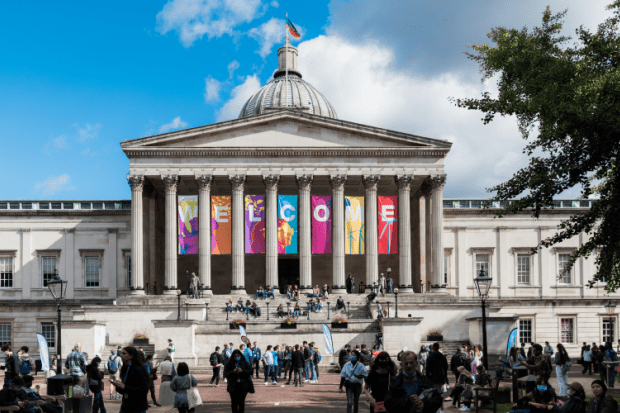A UK-based charity has rescued more than 200 Ukrainian academics – and 10 Russian scholars – since the invasion of the country began 18 months ago.
The Council for At-Risk Academics (Cara) has found roles to allow those fleeing the conflict to continue their work at more than 60 universities.
It said requests for support had been higher in the past year than at any time since its formation in 1933, when it helped academics escape from Nazi persecution.
A total of 210 Ukrainian academics have been supported by Cara since Russia invaded in February 2022, either directly or through close engagement with the British Academy-led Researchers at Risk programme. The vast majority are women owing to rules prohibiting male citizens aged 18 to 60 from leaving the country.
The charity helps scholars escape from violence, repression and threats to intellectual and individual freedom and uses its network to find them placements at universities in the UK, while also providing funding and help with practical arrangements, such as securing visas.
“UK universities are leading the way in providing support for some of the world’s most gifted minds,” Stephen Wordsworth, executive director of Cara, said. “It is the generous support of these universities which enables us to continue our mission to rescue these threatened academics from grave danger around the world.”
One of the cases highlighted by the charity is that of Nadiia Lolina, a university lecturer in urban and public art, who left Kyiv at the start of the war to travel first to western Ukraine and then to Riga, Latvia, becoming separated from her husband and parents in the process.
She is now continuing her postdoctoral research at the School of Advanced Study, University of London, thanks to funding arranged by Cara through the Institute of Historical Research.
Cara has also supported Russian academics at risk because they have openly questioned the war and Vladimir Putin’s regime.
One scholar, referred to only as Dr B, had signed petitions criticising the invasion and said he saw colleagues who had also questioned the war being dismissed from their positions and arrested, so he fled with his wife to a neighbouring country. There, he contacted Cara, who helped him to secure a university placement in the UK.
Mr Wordsworth said the Ukraine conflict was just one reason why the charity’s work was so in demand, with requests for help coming also from the Middle East, Sudan and Afghanistan.
“There are many other countries too where academics face heightened risks from conflict, or oppression, imprisonment, and murder at the hands of despotic regimes and extremist groups who see free-thinking academics as a threat,” he said.
“These are enormously talented individuals who bring unique experience and knowledge to the UK, forging lasting partnerships that will prove invaluable when it becomes safe for them to return home and rebuild their countries.”
Register to continue
Why register?
- Registration is free and only takes a moment
- Once registered, you can read 3 articles a month
- Sign up for our newsletter
Subscribe
Or subscribe for unlimited access to:
- Unlimited access to news, views, insights & reviews
- Digital editions
- Digital access to THE’s university and college rankings analysis
Already registered or a current subscriber? Login








